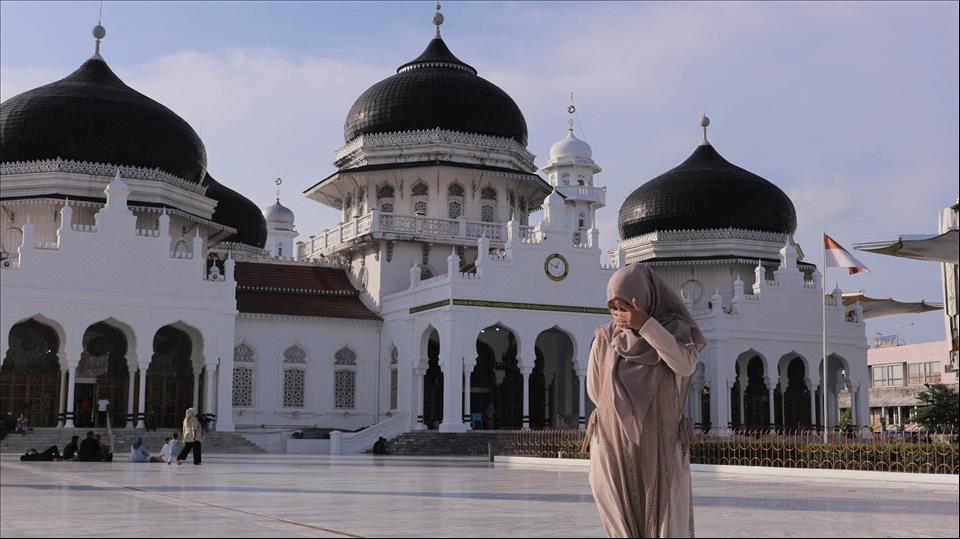
Acehnese Women: Crucial Role In Peacebuilding Overlooked, Discriminated By Local Regulations
20 years have passed since the Aceh tsunami, leaving deep scars on Indonesia, especially for those directly affected. Aceh was also recovering from a three-decade armed conflict between the Free Aceh Movement and the national government
Throughout December 2024, The Conversation Indonesia, in collaboration with academics, is publishing a special edition honouring the 20 years of efforts to rebuild Aceh . We hope this series of articles preserves our collective memory while inspiring reflection on the journey of recovery and peace in the land of 'Serambi Makkah.'
Acehnese women have long been integral to the history of their region, particularly after the 2004 tsunami, one of Indonesia's deadliest natural disasters, and the Helsinki Peace Agreement , which ended years of conflict between the government and the Free Aceh Movement (GAM). Despite their crucial contributions to rebuilding and fostering peace, women in Aceh still face major challenges in ensuring that the peace achieved includes their needs and rights.
Their efforts often go unrecognised, and the policies that shape their lives fail to address their realities. In some cases, these policies actively discriminate against women.
Policies that marginalise womenAs the conflict in Aceh escalated into firefights, lasting over a decade of 1989-2005, many women became primary breadwinners, ensuring their children's education and providing emotional support to their families. Around 2,000 women actively participated in the fight, picking up arms as combatants.
In the years following the 2004 tsunami and the 2005 Helsinki Peace Agreement, some progress was made to include women in policy-making processes. However, the outcomes have been unremarkable. Policies implemented after the peace agreement rarely put women's needs first or acknowledged their efforts.
For instance, Aceh's 2009 Qanun –a regulation unique to Aceh–aims to promote women's empowerment and protection, but its implementation remains weak. Women have little say in decision-making, and their representation in province, district, and city-level leadership posts remains minimal.
Here are some examples of how women in Aceh have been sidelined in decision-making, discriminated against in their daily lives and frequently harassed:
-
Absent in politics : In 2017, only one woman was elected deputy mayor among 23 district leaders. Similarly, just two out of 65 top provincial officials were women. These figures reflect a stark imbalance, especially when compared to the substantial roles women played during the conflict and its aftermath.
Clothing guideline : Regulations ostensibly implemented under Islamic law often restrict women's freedoms. For example, West Aceh's 2010 regulation requires women to wear skirts, prohibiting the use of trousers despite their roots in traditional Aceh's attire. Women become subjects of public inspection , and violations ends with them not receiving public services that should be open for any citizens. Discriminatory norms and limiting women's freedom : In Lhokseumawe, a 2013 circular mandated women ride sidesaddle on motorcycles, even though such a position increases the risk of accidents . Similarly, a 2018 directive in Bireuen forbids women from being served in cafes after 9 PM without a male guardian and bans women from sitting with unrelated men.
Gender-based violence : Aceh also faces high rates of violence against women. Between 2019 and 2023, more than 5,000 cases of violence against women and children were reported. Shockingly, Aceh has the highest number of rape cases in Indonesia . Insufficient support for victims : Despite the severity of the issue, support for survivors remains inadequate. From 2020 to 2024, only 0.12% of Aceh's provincial budget was allocated to the Women's Empowerment and Child Protection Agency. While this allocation has increased slightly over time, it is still lacking to address the needs of women , particularly those who suffered from violence and the conflict.
The younger generation, particularly Gen Z, offers hope for a brighter future. Acehnese young women are increasingly leveraging digital platforms to advocate for their rights and challenge societal norms. Their ability to connect with global networks gives them tools to amplify their voices and demand equality.
This new generation has the potential to drive meaningful change, but they face entrenched patriarchal norms that require dismantling. To achieve substantial peace and gender equality in Aceh, empowering young women as agents of change and supporting their initiatives to create a more inclusive society is essential.
To ensure that Aceh achieves lasting peace that benefits everyone, several steps are necessary:
-
Inclusive policy-making : Women must be included in all decision-making processes, especially those related to peacebuilding and post-conflict recovery.
Reforming discriminatory policies : Laws restricting women's rights must be repealed to create a more equitable environment. Comprehensive support for survivors : Addressing the needs of survivors of violence through legal, medical, and psychological support is crucial.
Strengthening Legal Protections : Laws like Aceh's Qanun Jinayah (Islamic Criminal Law) should be revised better to protect women, particularly victims of sexual violence.
Acehnese women have demonstrated remarkable resilience and strength throughout the region's history. By ensuring their voices are heard and their rights respected, Aceh can move closer to achieving true peace and equality for all its citizens.
This article was originally published in Indonesian

Legal Disclaimer:
MENAFN provides the
information “as is” without warranty of any kind. We do not accept
any responsibility or liability for the accuracy, content, images,
videos, licenses, completeness, legality, or reliability of the information
contained in this article. If you have any complaints or copyright
issues related to this article, kindly contact the provider above.

















Comments
No comment